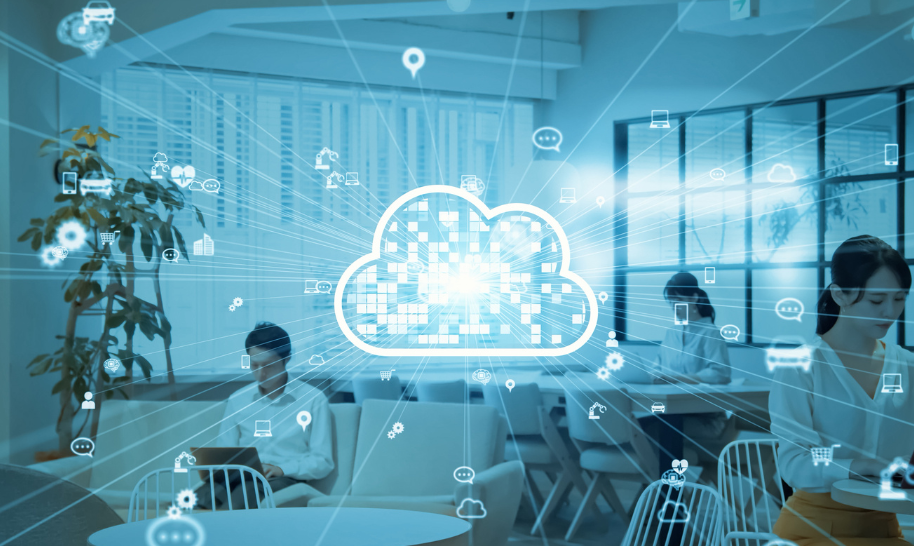The human resources landscape stands at a critical inflection point. Generative AI in HR has evolved from experimental technology to an essential strategic capability, fundamentally reshaping AI in human resources, how organizations manage talent, design work, and deliver employee experiences.
HR leaders estimate that 37% of the workforce will be impacted by GenAI in the next two to five years, up from 27%. This rapid acceleration signals more than technological adoption it represents a paradigm shift toward intelligent, adaptive HR ecosystems and the future of AI in the workplace.
The imperative is clear: organizations must move beyond pilot projects to enterprise-scale Gen AI implementation and broader AI adoption in HR processes. Only 25% of organizations have successfully scaled their AI initiatives, creating a competitive advantage gap that separates AI-mature companies from their peers, underscoring the need for scaling HR impact with AI.
This requires reimagining work itself not just automating existing processes, but creating entirely new models of human-AI collaboration that amplify employee potential while driving organizational performance through Generative AI for workplace transformation.
Key Takeaways
-
Gen AI transforms HR operations through intelligent automation, predictive analytics, and personalized AI-driven employee experiences, moving beyond traditional rule-based systems to strategic decision-making support and showing how AI is transforming HR.
-
Enterprise scaling requires a systematic approach with an 18-24 month implementation roadmap, robust data governance, ethical frameworks, and sustained leadership commitment for successful transformation, practical guidance for Gen AI for HR programs.
-
Real-world applications deliver measurable results including 60% faster hiring, 40% improved engagement, and 50% reduced inquiry volume across recruitment, performance management, and learning functions – clear benefits of Gen AI in HR.
-
Human-AI collaboration model preserves creativity and empathy while leveraging AI for HR automation for data processing, ensuring transparent decision-making and maintaining employee privacy and dignity.
-
Strategic partnerships accelerate implementation by providing technical expertise, reducing risk, and enabling focus on business outcomes rather than technical complexity management across AI in HR management systems.
Understanding Generative AI in HR
Generative AI represents a fundamental shift from reactive HR administration to proactive strategic partnership. Understanding its core technologies and current applications provides the foundation for successful enterprise implementation and modern AI in HR technology.
Core Technologies Transforming HR Operations
Generative AI encompasses machine learning models that create new content, insights, and solutions from existing data patterns. Unlike traditional automation, Gen AI generates human-like text, analyses complex scenarios, and provides contextual recommendations, prime generative AI use cases in HR.
Key technologies include large language models (LLMs) for conversational interfaces, natural language processing for document analysis, and predictive analytics for workforce planning. These capabilities enable HR to move from reactive administration to proactive strategic partnership, demonstrating how AI is transforming HR end to end.
Primary Gen AI Applications in HR:
|
Function |
Application |
Impact |
|
Recruitment |
Candidate sourcing, job description generation, interview scheduling |
60% faster time-to-hire |
|
Performance Management |
Goal setting, feedback analysis, development planning |
40% improvement in employee engagement |
|
Learning & Development |
Personalized training paths, content creation, skill assessment |
35% increase in learning completion rates |
|
Employee Experience |
Chatbots, policy guidance, benefit optimization |
50% reduction in HR inquiry volume |
Current Implementation Landscape
Organizations are deploying Gen AI across the employee lifecycle with varying degrees of sophistication. Early adopters focus on high-volume, routine tasks like resume screening and employee inquiries, an entry point for Gen AI for talent acquisition and case-based assistants.
Generative AI is expected to fundamentally change business models, increasing productivity by 21%–35%. This productivity gain stems from AI's ability to handle complex, unstructured tasks that previously required significant human intervention, reinforcing the benefits of Gen AI in HR.
Advanced implementations leverage Gen AI for strategic functions including workforce analytics, succession planning, and organizational design. These applications require robust data foundations and sophisticated governance frameworks within AI in HR management systems.
ALSO READ: Generative AI vs Agentic AI
Efficiency Gains and Business Value
Gen AI delivers measurable impact through three primary mechanisms: task automation, decision enhancement, and experience personalization. Automation eliminates repetitive work, allowing HR professionals to focus on high-value strategic activities – tangible AI for HR automation.
Decision enhancement provides data-driven insights for complex people's decisions, reducing bias and improving outcomes. Personalization creates tailored employee experiences that drive engagement and retention, elevating the AI-driven employee experience.
80% of organizations are projected to use AI predictions for workforce planning and 70% of employees expect personalized AI-driven career development plans by 2025, indicating widespread momentum for AI in human resources.
The Imperative to Scale Gen AI in HR
Enterprise-scale Gen AI adoption separates industry leaders from laggards, creating sustainable competitive advantages. The transition from experimentation to transformation requires systematic approaches and organizational commitment – practical Gen AI for HR at scale.
Moving Beyond Pilot Project Limitations
Organizations are moving beyond experimentation, delivering measurable, enterprise-wide transformation. The pilot-to-production gap represents the greatest challenge in AI adoption, requiring systematic approaches to scaling and AI adoption in HR processes.
Successful scaling demands three critical shifts: from departmental to enterprise thinking, from single-use cases to integrated platforms, and from manual to automated operations. Organizations that achieve scale realize exponentially greater returns on AI investment.
Organizational Readiness Framework
Infrastructure Requirements:
-
Cloud-native data architecture
-
API-first system integration
-
Scalable computing resources
-
Real-time data processing capabilities
Data Governance Essentials:
-
Data quality management
-
Privacy protection protocols
-
Bias detection mechanisms
-
Audit trail maintenance
Enterprise readiness extends beyond technology to include governance structures, ethical frameworks, and change management capabilities, cornerstones of resilient AI in HR management systems. Business adoption of AI faces operational headwinds, including aligning leadership, addressing cost uncertainty, workforce planning, managing supply chain dependencies, and meeting demand for explainability.
Addressing Bias and Ensuring Transparency
Bias, transparency, data privacy, and employee monitoring are key issues that HR departments need to address when implementing AI tools. Ethical AI implementation requires proactive bias mitigation strategies throughout the AI lifecycle for trustworthy AI in human resources.
Transparency mechanisms include explainable AI models, decision audit trails, and clear communication about AI usage to employees. Regular bias testing and model retraining ensure fair outcomes across diverse employee populations.
Bias Mitigation Strategies:
-
Diverse training data sets
-
Regular algorithmic auditing
-
Human oversight protocols
-
Continuous monitoring systems
Building an AI-First HR Culture
Cultural transformation requires leadership commitment, skill development, and change management excellence. HR professionals must develop AI literacy while maintaining focus on human-centered outcomes, a cornerstone of Gen AI for HR maturity.
Successful organizations invest in AI training programs, create cross-functional AI teams, and establish clear governance structures. Leadership alignment ensures consistent messaging and resource allocation for AI initiatives.
Key Cultural Elements:
-
Executive sponsorship and vision
-
Employee AI literacy programs
-
Ethical decision-making frameworks
-
Continuous learning mindset
Reimagining Work with Gen AI
Generative AI integration fundamentally transforms work design, creating new models of human-AI collaboration that amplify employee potential – true Generative AI for workplace transformation. This evolution requires rethinking traditional roles, processes, and organizational structures.
Transforming Work Design and Employee Roles
Gen AI fundamentally reshapes work by automating routine tasks and augmenting human capabilities. Traditional job boundaries blur as AI handles administrative work, enabling employees to focus on creative, strategic, and interpersonal activities, visible benefits of Gen AI in HR at role level.
The future of HR is fewer "support agents" and more "consultants, product managers, designers, and advisors". This evolution requires rethinking job designs, career paths, and competency models.
New hybrid roles emerge that combine human judgment with AI capabilities. HR analysts become workforce strategists, recruiters become talent experience designers, and training specialists become learning architects, enabled by AI in HR technology and AI in HR management systems.
Augmented Intelligence in Practice
Augmented intelligence represents the optimal human-AI collaboration model, where AI enhances rather than replaces human decision-making. HR professionals leverage AI insights while maintaining accountability for people's decisions, exemplifying how AI is transforming HR.
Augmented Intelligence Applications:
-
Predictive analytics for turnover risk
-
Sentiment analysis for employee engagement
-
Skills gap identification and development planning
-
Compensation benchmarking and optimization
This approach preserves human empathy, ethical reasoning, and contextual understanding while benefiting from AI's data processing and pattern recognition capabilities.
New Workflows and Collaboration Models
Gen AI enables entirely new workflows that were previously impossible at scale. Real-time feedback systems, personalized career guidance, and dynamic team formation become standard capabilities – practical AI for HR automation in action.
Transformed HR Workflows:
|
Traditional Process |
AI-Enhanced Workflow |
Key Benefits |
|
Annual performance reviews |
Continuous feedback with AI analysis |
Real-time development, reduced bias |
|
Manual skills assessment |
AI-powered competency mapping |
Accurate skill gaps, personalized development |
|
Generic training programs |
Adaptive learning paths |
Higher engagement, better outcomes |
|
Reactive employee support |
Proactive intervention based on predictive analytics |
Improved retention, employee satisfaction |
Balancing Human Creativity and AI Capabilities
The future of work requires careful orchestration of human and artificial intelligence. AI excels at data processing, pattern recognition, and routine task execution. Humans provide creativity, emotional intelligence, and complex problem-solving.
Successful organizations create complementary partnerships where AI handles analytical heavy lifting while humans focus on relationship building, strategic thinking, and innovation. This balance preserves the human elements that drive employee engagement and organizational culture.
Human-AI Collaboration Principles:
-
AI provides insights, humans make decisions
-
Maintain human oversight in all people-related choices
-
Preserve employee privacy and dignity
-
Ensure transparent AI decision-making processes
Challenges and Risks in Scaling Gen AI in HR
Enterprise AI implementation faces significant obstacles including security concerns, workforce resistance, and technical complexity. Proactive risk management strategies are essential for successful scaling initiatives, especially for regulated AI in human resources contexts. Here are some generative AI challenges:
Security, Privacy, and Compliance Concerns
Privacy concerns remain a major barrier to gen AI implementation. HR systems contain highly sensitive personal data requiring sophisticated protection mechanisms and regulatory compliance frameworks.
Data governance becomes critical as AI systems require access to comprehensive employee information for effective operation. Organizations must balance AI capability requirements with privacy protection and regulatory compliance obligations.
Security Risk Categories:
-
Data breaches and unauthorized access
-
Model poisoning and adversarial attacks
-
Privacy violations and regulatory non-compliance
-
Intellectual property exposure
Managing Workforce Fear and Resistance
Employee concerns about job displacement and AI surveillance create significant change management challenges. Transparent communication about AI's role and human-AI collaboration models helps address these concerns and supports AI adoption in HR processes.
Successful organizations invest heavily in employee education, clearly communicate AI boundaries, and demonstrate how AI enhances rather than replaces human work. Regular feedback collection and adjustment helps build trust and acceptance.
Technical and Strategic Implementation Hurdles
Common Implementation Challenges:
|
Challenge Category |
Specific Issues |
Mitigation Strategies |
|
Data Quality |
Incomplete, inconsistent, or biased data |
Data cleansing, validation, standardization |
|
System Integration |
Legacy system compatibility, API limitations |
Phased modernization, middleware solutions |
|
Skills Gap |
Lack of AI expertise, resistance to change |
Training programs, external partnerships |
|
Cost Management |
Unclear ROI, budget constraints |
Pilot programs, incremental investment |
Technical complexity increases with scale, requiring sophisticated architectural planning and ongoing technical support. Organizations often underestimate the infrastructure and governance requirements for enterprise AI deployment.
ALSO READ: HR Software Development Challenges and Cost Explained
Real-World Examples of Gen AI in HR
Leading organizations across industries are demonstrating the transformative power of Gen AI through measurable business outcomes and enhanced employee experiences. These practical implementations showcase proven approaches to scaling AI while maintaining human-centered workplace culture, proof points for Generative AI in HR.
Transforming Recruitment and Talent Acquisition
Unilever revolutionized their global recruitment process by implementing comprehensive AI-driven talent acquisition systems that dramatically improved efficiency and candidate experience and achieved landmark results for Gen AI for talent acquisition. They reduced their time-to-hire from six months to just eight weeks, demonstrating the powerful impact of systematic AI integration in high-volume recruitment environments.
The company deployed AI-powered video interviewing, personality assessments, and predictive analytics to identify top candidates more accurately while reducing unconscious bias in hiring decisions. Their success exemplifies what happens when HR teams directly shape AI implementation rather than waiting for IT department initiatives, creating more responsive and effective talent acquisition processes.
Enhancing Employee Experience and Engagement
Walmart has pioneered AI applications in employee support and development, creating personalized experiences that help associates navigate complex benefit systems and career advancement opportunities, an AI-driven employee experience at scale. Walmart employs AI to help staff members select the best healthcare providers for their needs, demonstrating practical applications of AI in improving employee satisfaction and decision-making support.
Grede Foundry achieved remarkable success with their AI chatbot implementation, deploying "Moe" to support frontline workers during onboarding processes. Moe achieved a 48% engagement rate during onboarding processes, successfully answering 62% of employee questions without requiring human intervention, a pragmatic AI in HR technology outcome, proving that conversational AI can effectively support employee needs while reducing administrative burden on HR teams.
Advancing Learning and Development
Leading learning platforms are leveraging AI to create personalized DevOps experiences that adapt to individual employee needs and organizational requirements. Cornerstone, Docebo, Degreed and others are now using AI to intelligently recommend content based on Talent Intelligence, produce and recommend micro-learning based on role, team, location, and employee activity, everyday generative AI use cases in HR that lift completion and impact.
These platforms use AI not just for content recommendation but as interactive learning tools that prompt employees to engage with development opportunities aligned with their career goals and performance objectives. This approach transforms traditional one-size-fits-all training into dynamic, personalized learning journeys that drive better business outcomes.
Strategic Recommendations for HR Leaders
Successful Gen AI scaling requires systematic implementation approaches that balance technological capabilities with organizational readiness. These strategic recommendations provide actionable frameworks for sustainable transformation and scaling HR impact with AI.
Comprehensive Implementation Roadmap
The implementation roadmap follows three distinct phases, each building upon previous foundations to ensure structured AI adoption in HR processes. Organizations typically require 18-24 months to complete the full scaling journey with proper planning and execution.
Phase 1 focuses on foundation building during months 1-6, emphasizing readiness assessment and capability development. Organizations must evaluate current AI maturity, establish robust data governance frameworks, and select high-impact pilot use cases with measurable success criteria. Building internal AI literacy and change management capabilities creates the organizational foundation necessary for successful scaling initiatives.
Phase 2 involves pilot implementation during months 6-12, concentrating on controlled deployment and learning optimization. Teams deploy targeted AI solutions in specific use cases, gathering comprehensive user feedback and measuring quantifiable business impact. This phase emphasizes process refinement, challenge resolution, and strategy development based on real-world pilot results and organizational learning.
Phase 3 encompasses enterprise scaling during months 12-24, expanding successful initiatives across the entire organization. Teams integrate AI capabilities into core HR processes, establish comprehensive monitoring and optimization procedures, and systematically expand AI applications to additional use cases. This phase requires sustained leadership commitment and robust change management support.
Inclusive Design and Ethical AI Practices
Ethical AI implementation requires proactive attention to fairness, transparency, and accountability throughout the development and deployment lifecycle. HR leaders must ensure AI systems actively promote rather than inadvertently hinder diversity, equity, and inclusion objectives across all employee interactions.
Organizations must conduct regular bias audits on AI models and outcomes, maintaining rigorous human oversight in all consequential people decisions, responsible AI in human resources. Providing clear, understandable explanations for AI-driven recommendations builds trust and transparency, while establishing formal appeals processes ensures employee recourse for AI-influenced decisions that impact their careers or workplace experience.
Inclusive design principles ensure AI systems work effectively for all employees regardless of background, role, geographic location, or personal circumstances. This comprehensive approach includes accessibility considerations for employees with disabilities, cultural sensitivity for global workforces, and accommodation for different work styles and preferences.
Technology Partnership Strategy
Successful Gen AI scaling often requires external expertise and strategic technology partnerships to accelerate implementation and reduce risk. HR leaders should systematically evaluate potential partners based on proven technology capabilities, extensive implementation experience, and demonstrated long-term strategic alignment with organizational objectives.
Critical partnership evaluation criteria include proven track records in enterprise AI implementation, comprehensive platform capabilities with robust integration options, and strong security and compliance frameworks, especially where legacy AI in HR management systems need augmentation. Partners must demonstrate ongoing support capabilities and maintain continuous innovation roadmaps that align with evolving organizational needs and technological advancement.
Strategic partnerships provide immediate access to cutting-edge AI capabilities while significantly reducing implementation risk and accelerating time-to-value. These relationships enable organizations to focus resources on achieving business outcomes rather than managing technical complexity and infrastructure challenges.
Continuous Learning and Adaptation Framework
AI technology evolves rapidly, requiring organizations to maintain adaptive learning mindsets and flexible implementation capabilities. Regular assessment of AI performance, comprehensive employee feedback collection, and systematic emerging technology monitoring ensures continued relevance and sustained effectiveness over time.
Continuous improvement encompasses regular performance monitoring and optimization, systematic employee feedback collection and analysis, proactive technology trend monitoring and evaluation, and ongoing skills development and capability building to keep pace with the future of AI in the workplace. Organizations must establish formal processes for capturing learning, implementing improvements, and adapting strategies based on results and changing needs.
Successful organizations approach AI implementation as an ongoing transformation journey rather than a finite project with defined endpoints. They continuously refine and strategically expand their AI capabilities based on measured results, employee feedback, and evolving business requirements.
Closeloop: Accelerating Enterprise AI Transformation
Closeloop stands at the forefront of enterprise AI transformation, specializing in comprehensive Generative AI services and solutions that bridge the gap between AI potential and practical implementation. Our expertise spans the complete AI lifecycle, from strategic planning and data architecture to deployment and optimization, helping enterprises operationalize Gen AI for HR and modernize AI in HR technology stacks with measurable results.
Our proven methodology combines deep technical expertise with industry-specific knowledge, enabling rapid scaling of AI initiatives across complex enterprise environments. Closeloop's platform-agnostic approach ensures seamless integration with existing HR systems while maintaining the flexibility to adapt to evolving organizational needs and emerging technologies.
The client success stories demonstrate consistent outcomes including 40-60% improvement in operational efficiency, significant reduction in implementation timelines, and sustained user adoption rates exceeding industry benchmarks. Our commitment to ethical AI practices and inclusive design ensures that transformations enhance rather than replace human capabilities, creating workplaces that are both more efficient and more human-centered.
Conclusion
The transformation of HR through generative AI represents more than technological evolution, it marks a fundamental reimagining of how organizations nurture, develop, and engage their workforce, definitive evidence of Generative AI in HR. Almost all companies invest in AI, but just 1% believe they are at maturity, highlighting both the urgency and opportunity facing HR leaders today.
The imperative to scale Gen AI extends beyond operational efficiency to strategic competitive advantage. Organizations that successfully implement enterprise-scale AI capabilities will create more engaging employee experiences, make better people decisions, and adapt more quickly to changing business requirements, the clearest picture yet of how AI is transforming HR.
Success requires more than technology deployment, it demands cultural transformation, ethical leadership, and unwavering focus on human-centered outcomes. HR leaders must champion this transformation while ensuring AI enhances rather than diminishes the human elements that make organizations successful.
The future workplace will be characterized by seamless human-AI collaboration, personalized employee experiences, and data-driven people strategies. Organizations that embrace this transformation today will define tomorrow's standards for employee engagement, organizational agility, and business performance, leading the future of AI in the workplace.
The journey toward Generative AI in staffing and recruitment is complex but essential. With proper planning, ethical frameworks, and strategic partnerships, organizations can harness Gen AI's transformative potential to create workplaces that are not just more efficient, but more human, inclusive, and fulfilling for all employees.
The time for experimentation has passed. The era of scaled, strategic Gen AI
for HR implementation has begun.
Talk to our AI experts today.
Explore Our Latest Articles
Stay abreast of what’s trending in the world of technology with our well-researched and curated articles
View More InsightsCost Breakdown to Build a Custom Logistics Software: Complete Guide
Global logistics is transforming faster than ever. Real-time visibility, automation, and AI...
Logistics Software Development Guide: Types, Features, Industry Solutions & Benefits
The logistics and transportation industry is evolving faster than ever. It’s no longer...
From Hurdle to Success: Conquering the Top 5 Cloud Adoption Challenges
Cloud adoption continues to accelerate across enterprises, yet significant barriers persist....
The AI Procurement Revolution: Why Generative AI Is Your 2025 Game-Changer
Procurement departments are experiencing their most significant transformation since the...




